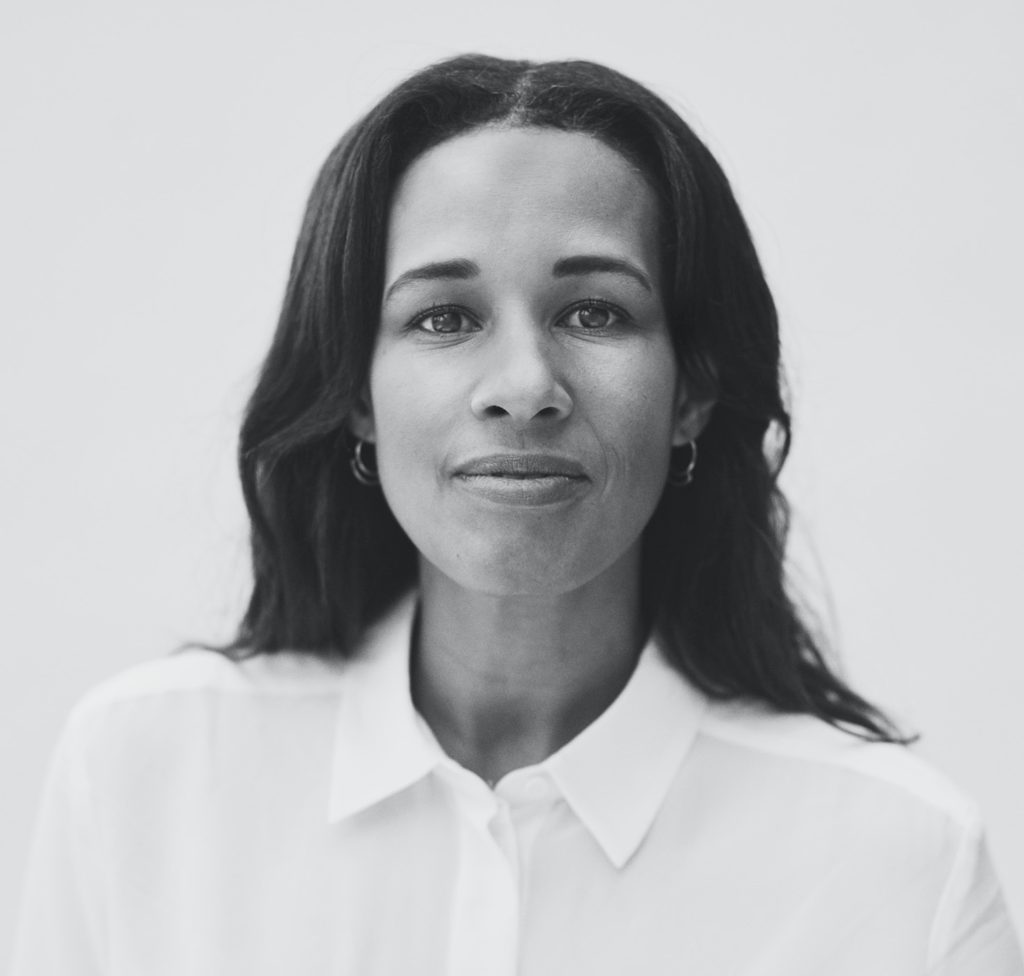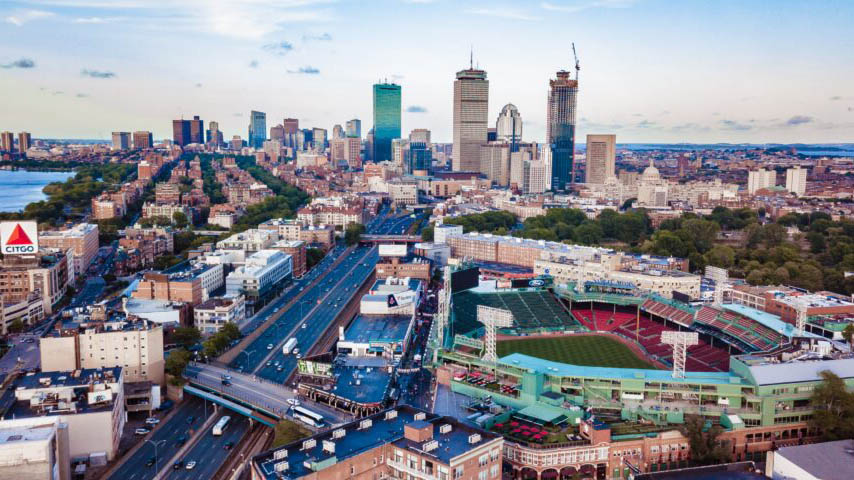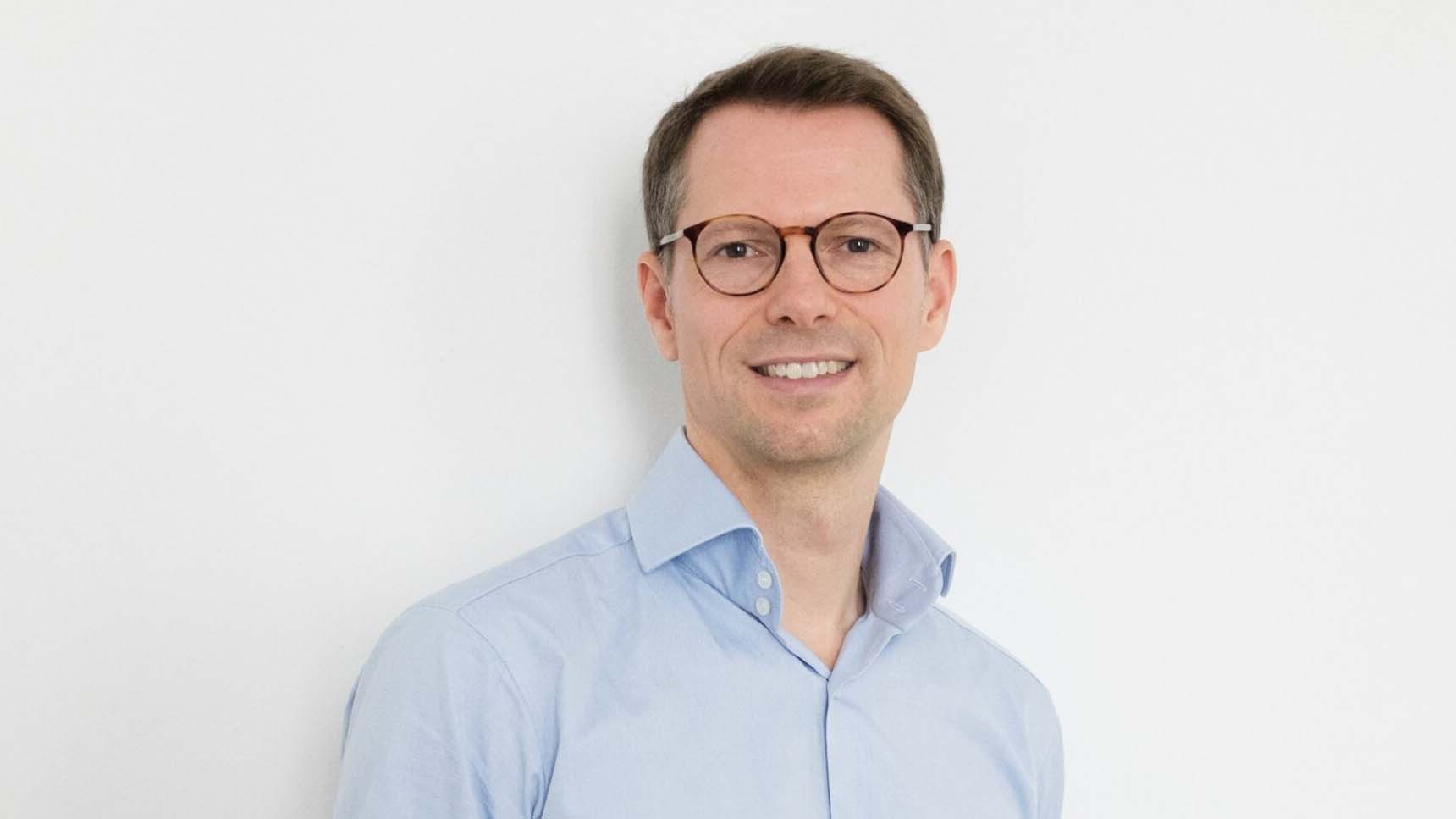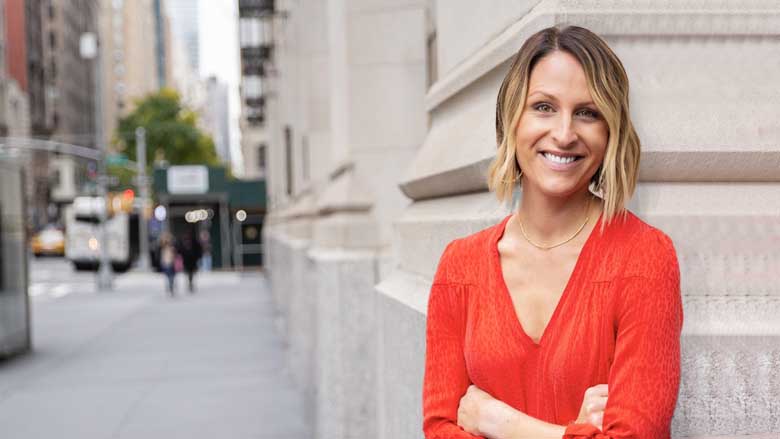June 17, 2020
Founded in September of 2018 by Helena Mueller, Johan Pihl, Mathias Wikström, Fredrik Lagertrad, and Nathalie Green, Doconomy is a mobile banking service developed to inspire changes in consumer behavior to reduce unsustainable consumption and carbon emissions. Doconomy bills itself as a banking service with a conscience, where your spending and your savings are measured by their impact on the planet, both negative and positive.
Its first two products are DO, a mobile banking app that allows users to track and understand the C02 emissions associated with their purchases, connected to their own credit card, the DO card. DO White is Doconomy’s standard credit card that focuses on tracking the impact of your spending. The Premium card DO Black is a credit card that can block your ability to make purchases once your carbon limits have been reached for the year. The DO app, launched in Sweden in December of 2019, and the DO credit card, which will be responsibly manufactured, will both be released in 2020.
Doconomy uses the Aland Index to tie each transaction to its impact on the environment. CO2 emission is calculated based on the average emissions of companies belonging to each major industrial or service sector. But the index does not measure the carbon footprint of each specific product, so the benefits of buying from companies performing better on carbon emissions than their competitors are not currently being recognized.
Customers will be rewarded for making more environmentally-friendly decisions. They will be able to receive DO credits from stores based on the carbon impact of their purchases. Doconomy intends to allow users to offset carbon related to their purchases by investing in UN-certified projects that reduce, avoid, or remove greenhouse gas emissions, or invest in a sustainable fund.
Also in the offing are a savings account paying interest derived from climate-friendly investments and an investment account directing capital towards sustainable initiative.
Last year, Mastercard made a strategic investment of undisclosed size in Doconomy and the two firms inked a partnership that will allow any Mastercard issuer to give customers the ability to track and understand the carbon footprint of their purchases.
This year, U.S.-based Bank of the West, a BNP Paribas subsidiary, will join Alandsbanken and Nordea Bank in enabling clients to track their CO2 impact. This is in line with BNP Paribas’ strategy of accelerating the energy transition of its clients.
Doconomy was the winner of a Bronze Lion in the Creative eCommerce category at Cannes in 2019. The startup currently has about 20 employees. Nathalie Green serves as CEO.

Nathalie Green
Q. Nathalie, Sweden has taken a different approach to COVID-19 than other countries. Is it business-as-usual in your home market?
A. Even though Sweden has a different approach or strategy to COVID-19, Swedish business life and society are severely affected. I’ve seen some articles from UK papers and American papers describing the situation in Sweden that don’t really make sense to me. Even though we don’t have a total lockdown, people are staying at home, working from home. It’s really surreal, living like this. Unemployment is up — 50,000 new people unemployed in the last two months. Businesses are failing. It’s definitely not business-as-usual.
Q. And business for Doconomy? How has that been impacted?
A. We have two business areas. One is our consumer business and the Do app. That’s only been launched in the Swedish market thus far, and of course in times like these, people are not generally thinking about a new credit card. It’s not the best of times for the Do app but I’m convinced that long term, what the world is experiencing now will incentivize people to be more conscious when it comes to both consumption and investing. It’s not on hold but most likely many people are focusing on other things right now rather than exploring new apps
But in our B2B business, which involves partnering with banks and allowing them to use our index solutions to provide their clients with the impact of their spending, we haven’t really seen any changes. We launched this offering in December 2019, and we’ve had a really good sales pipeline since then. Even more so now, banks are interested in, and understand how important it is to engage with, these kinds of questions. And they want to help their clients to engage with important issues.
COVID-19 has proven that things can change really quickly. We know that we need to do this. I am hoping that we will learn from this, speaking from a climate change point of view.
Q. In which markets are you up and running with your B2B solution?
A. With the B2B solution, we active in Scandinavia, through the Scandinavian bank Nordea. They are using our solution.
We will be launching with Bank of the West in the U.S. soon.
We are in active dialog with banks from all over the world, with a concentration in Europe. Within the next few months, there will be additional banks in Europe using our solution.
Q. How many people currently track the carbon footprint of their transactions with your white label service?
A. Right now, with Bank of Aland in Sweden and Finland and Nordea Bank across the whole of Scandinavia, there are around 8 million people. When Bank of the West launches, there will be a lot more.
Q. What have you learned about them demographically? Is DO a millennial play and are you positioning it as one?
A. When we started out, we were convinced that this was for millennials, and for women. We based that on a lot of research and on data that showed those were the groups most concerned about climate change and really ready to do something about it. When we developed our concept, we built it for millennials and for women between 18 and 45. Those were our two target groups.
But as we started to say hello to the world, started meeting with people, and established a site that allowed people to show their interest in our service, we realized that interest was split 50/50 between men and women — which was a big surprise — and from people of all ages — from teenagers to 55. The biggest group was younger — between 20 and 35 — but there was really a wide spread. What we see is that people are becoming aware in all age groups. So what we want to do is to build a global standard and make this available for as many people as possible.
Q. What have you observed regarding consumer behavior?
A. It’s too early to draw any conclusions. We launched the consumer service in the Swedish market in December and we only have two of the products up and running. That is our savings account and our offsetting. We were supposed to launch the card but because of COVID-19 we decided to wait. It’s difficult to gain traction and get through in times like these.
The data we have is from the Bank of Aland. They’ve been up and running with this since 2016. By way of background, there were five of us who started Doconomy almost two years ago. My colleague Mathias used to run an advertising agency in Stockholm. One of his biggest clients was the Bank of Aland. They actually developed the first version of the index we used together in 2015.
So when we started Doconomy, the index already existed. We’ve enhanced it and continued to develop it but it had been up and running for several years and used by 2 million clients with the Bank of Aland. We have their data, but what we’ve done ourselves is too new to draw conclusions from.
But what you can see is that people are using it. The banks are showing customers the climate impact of their transactions. People are following their progress. What we can also see is that when people are really making an effort they have less purchases in categories that are more unsustainable.
It’s a powerful tool. We’ve been testing it ourselves personally, and you quickly learn which categories you need to be careful about and how to lower your climate impact.
Q. How does Doconomy make money?
A. In our B2B business, the business model is that you pay a license to use the index. It’s a cost per user and card. In our consumer efforts, there’s a freemium offering and a premium offering. There’s a monthly fee for the premium version of the app.
Q. How have you adapted your B2B marketing to the age of pandemic? Are travel restrictions in other markets an issue?
A. We tend to avoid traveling anyway, being the kind of company we are.
Bank of the West is a great example. We met once, and that was eight months ago when one of us went to San Francisco. The rest has been done like this call — remotely. So it’s business as usual for us.
Q. On the B2B side, is integration required to allow retail banking customers to use the DO app and card in conjunction with their existing accounts?
A. It’s a cloud-based service. We built an API, so it’s basically just hooking up to that. So far, we haven’t encountered any problems. Most banks now — I’m quite impressed, actually — most banks are far ahead when it comes to using APIs. At least the ones we’re talking with.
The big hurdle has been compliance. And the process when a bank onboards a new supplier is, uh, exciting?
Q. Is your objective to lower consumption (which will lower overall economic activity) or to get people to make better choices as they consume? Or both?
A. We talk about smarter consumption. To me, smarter consumption means making better choices. Something that’s been very important to us throughout this journey is the fact that this is really hard. It’s hard to make the changes that really count. It’s something that needs to be done step-by-step. Decreasing consumption and making people have a bad conscience is not the right way. What we want to do is help people make better choices and consume more intelligently.
Q. Is there evidence that shifts in purchase behavior can meaningfully impact climate change?
A. Good question. That’s the debate. I hear people say that changing consumer behavior won’t do anything — that it’s about changing big systems and passing legislation.
All that is true, but I believe in the power of many. I don’t think you should underestimate that. We see all the time that the big brands and big companies realize that consumers are starting to demand new things and different things in terms of sustainable production methods and organic products.
I’m convinced that consumers can make a difference and that this change in consumer behavior that we all need to do is going to help us.
Q. You use the Aland Index to measure the carbon impact of each transaction. What are the strengths and weaknesses of this index? Where do you want to see it go?
A. We just finished the 2.0 version of the Aland Index which makes it even better. It’s more granular than it used to be, although to be clear, the index is based on product category level, not on product level. To me, the weakness is that we don’t have product impact. It’s something that I would love to have.
Our mission is to get there. It will be hard work and it is long-term, but we have initiated a couple of projects to take that next step. One of them is allowing companies and brands to actually donate product data to allow us to present the carbon impact in a more granular way. We are partnering up with an AI company to take the next step on that.
The other thing we’re adding is more climate data. We have carbon included in the index and soon we’ll have water data. We’re looking at biodiversity and land use, as well. So, of course we will continually develop our index.
In my experience, most people don’t know that much about their own carbon footprint, and what we’re doing here is giving them a pretty good indication of where they’re at and the tools to actually change that.
Q. I’m confused by Doconomy’s relationship with the Aland Index and Alandsbanken. Can you help me sort it out?
A. Bank of Aland is a Doconomy investor. They own 20% of Doconomy. We have the rights to the index IP. We have created a joint venture called Aland Index Solutions but it’s Doconomy that is marketing and selling the actual index.
Q. How are you determining the price of CO2 emissions?
A. We’ve had a lot of discussions about that because carbon pricing is totally bananas, to be honest. It’s all over the place. We decided to go with the recommendation from the World Bank which was €90 per ton a couple of years ago. Some people feel that’s expensive, but if you want to present the true cost of something, it needs to be the true cost. There’s been a lot of speculation that it’s going to be raised.
Q. How will you be setting the carbon limits on the DO Black card when it is out in the market? Will cardholders be able to set their own limits?
A. What we’ll do is set a carbon limit for Black card customers based on the average carbon impact for that specific country. So for the Swedish market, the average impact for consumption is six tons per year. The idea will be to reduce that by 50%, to three tons per year, by 2050.
Q. Are these numbers based on the Paris climate change accord?
A. Yes, exactly. It will be different in each market. It will be a monthly limit. The functionality will be available in the DO White card as well. I think that’s what you are talking about — being able to set your own carbon limit and being able to switch on and switch off. It’s coming but we don’t have it yet.
Q. After I hit my carbon limit, will I be truly cut off until the next month?
A. You’re cut off until the next month!
Q. Doconomy has been named a partner to the United Nations Framework Convention on Climate Change (UNCCC). What does this mean to the company and its customers?
A. When we started this company and started talking about the offsetting offering, we knew that we wanted to work with the UNCCC. We’ve been in touch with them for quite a while now. Having them support us on this journey means everything to us. We’re also part of their global climate action consumer campaign. To have access to their knowledge and to be able to choose the actual offsetting projects with the UNCCC is worth a lot for us as a company.
For our customers, it ensures our credibility and ensures the quality of our offsetting projects.
Q. How will DO Credits work when they launch? Which brands will be retail partners, and how does this concept of retail partner fit within the DO ecosystem?
A. We have a few partners signed but none I can tell you about right now.
We intend to build a new type of loyalty program that we call Planet Loyalty. If you are making a purchase at one of our partners, that partner will compensate you for the impact of the product that you’re purchasing. So if you are buying a t-shirt at Nike, for $20, they will give you back a climate bonus or credit of let’s say $5 (assume that is the climate impact of the purchase) and you will be able to activate that bonus or credit in the app and choose if you want to offset it and support a climate project or invest in a sustainable fund. That is the model for the loyalty program or credits.
Q. What types of projects qualify?
A. Card users can donate to projects that meet the criteria of UNCCC. They need to be gold-standard projects only. We need to know they really deliver. Also, it is really important that we can communicate in an inspirational way to our users and that means that the project really needs to offer both imagery and numbers we can communicate to our users.
Q. Have you chosen an investment manager for the green investment fund?
A. Yes, we have.
Q. Can you tell me who it is?
A. I’m afraid I can’t. It’s a global asset manager with a real edge in sustainability.
Q. When will that launch?
A. After summer. We’re delayed a bit with the card, so I can’t see how we’d be able to launch any earlier.
Q. What can you tell me about the strategic equity investment Mastercard made in Doconomy last December? Why a strategic investor for your only round of financing rather than an institutional VC or a combination?
A. A combination would have been nice. This is the first time I’ve done this, raising money for a company. What I’ve learned is that you seldom see that combination. I don’t know if you agree, but I hear it’s either industry players or VCs and they don’t seem to be that keen to invest with each other.
Mastercard has been with us from the beginning. They’ve been on this journey with us and they’ve helped us a lot. They have incredible muscles when it comes to communication. When we launched the future of sustainable payments a year ago and said we were going to do this together, we got an enormous response. So it seemed quite natural for them to become an investor.
We can’t build a global standard on our own. For that, you need to work with a big player.
Q. I have a Mastercard. Can I use your app to find out the carbon impact of my spending today?
A. If your issuer chooses to use the index, then you’ll be able to access the app. It’s all dependent on your issuer or bank using the index. And they can, if they want to.
Q. So any U.S. bank that issues Mastercard can do that today?
A. Yes.
Q. What does your team look like?
A. We are 21 people, all in Stockholm. But up until August of last year, we were nine people. We’ve been growing very fast over the last six months. We’ve used a lot of consultants for development — for example, we had a large development team in Poland for a while. But the core has always been in Stockholm and we now have an in-house development team.
Q. Tell me about your partnership with Bank of the West.
A. Bank of the West and BNP Paribas have been seen for a long time as important players when it comes to financial services companies that take sustainability and impact investing really seriously. I wasn’t that surprised when they reached out to say that this was really interesting and something they wanted to test with their clients.
For us, it’s amazing to be able to cross the Atlantic and reach consumers in the U.S. They are super-engaged, and the launch is going to be really interesting.
Q. What is the FinTech scene like in Stockholm?
A. There are so many FinTechs and just startups in general! The climate in general is very friendly and people want to help. I’d been working in the corporate world the last ten years or so, so the startup world is new to me but it’s a friendly world. It’s easy to reach out to other people. And there are a lot of interesting ideas, as well, especially in terms of impact.
You’ve probably heard about Klarna, which is now a big Swedish company. One of the founders started a foundation called Norrsken a couple of years ago and used a lot of the money he made from Klarna to fund startups. He’s created a massive startup hub in central Stockholm where you can get office space and coaching. So there’s a lot that’s built around that.
I see Sweden as a really entrepreneurial country. It would be interesting to see the statistics.
Q. What else would you like people to know about Doconomy?
A. A lot of people have this idea that the sustainable option, the climate-friendly option, is the more expensive option. It’s not! It’s the other way around. Consuming smarter and investing for impact is a win-win for everyone. That’s what I want consumers to know.
When it comes to brands and companies, they’re already on the right track. Everybody knows that if we don’t do this, if we don’t change, we’re not going to be around that much longer.
# # #




1 comments On Doconomy: Banking Service With an Environmental Conscience
For anyone who would like to more know about the story of how Doconomy was built, I just published my recent interview with the CEO and head of Innovation at Doconomy. Here it is: https://hubs.la/H0zlwFp0
Comments are closed.